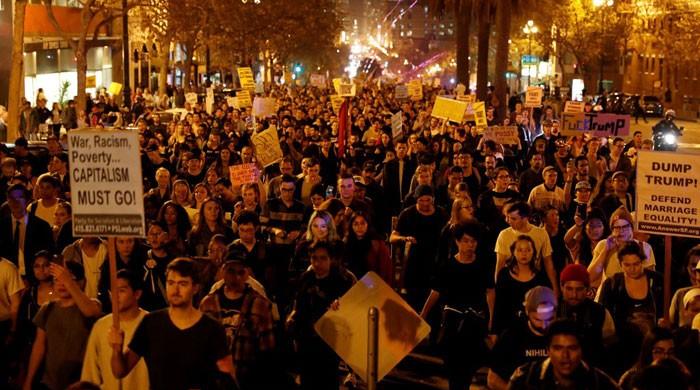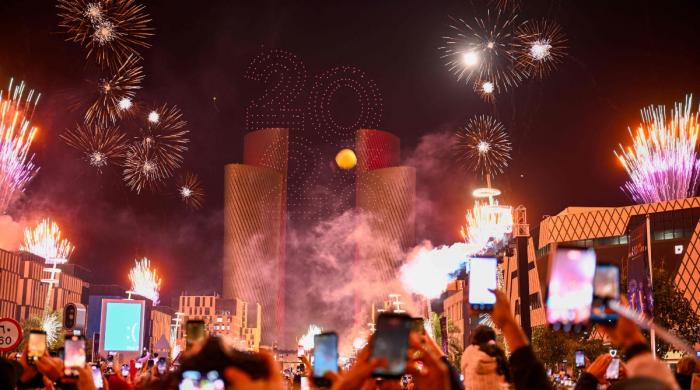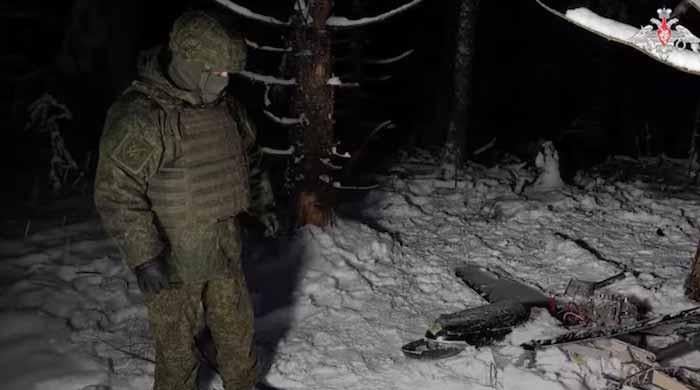Facing Trump stress disorder? Try cleaning out your freezer, manicure-pedicure
Experts suggest clean out your freezer, try a manicure-pedicure and stay off social media
November 14, 2016

NEW YORK: Clean out your freezer, try a manicure-pedicure and stay off social media.
Those are some of the tips offered by columnists and others to people dealing with what one psychologist has dubbed Election Stress Disorder, which he said has spiked since Donald Trump won the presidential election on Tuesday.
While many Americans celebrated the election victory of Republican Trump, who received 59.5 million votes, some supporters of Hillary Clinton, who got 59.7 million votes, took to social media to express anger and disappointment.
Psychology Today magazine posted "5 Tips for Coping with Post-Election Shock and Panic," starting with the advice to "do something productive."
"Do something that gives you a temporary sense of having some control, even if it's cleaning out your freezer," columnist Alice Boyes said.
Several other sites imparted similar suggestions. Cosmopolitan magazine offered "14 Effective Ways to Deal With Post-Election Anxiety."
One way is to stay off social media. Another is to "take care of yourself," and it quotes New Jersey-based family physician Jennifer Caudle as suggesting, "If you need a mani-pedi, the day after the election is the best day to get it."
Alison Howard, a Washington-based psychologist, said some of her patients have been talking about the election for months but that since the results came out have been expressing more grief, sadness and fear in a town where 93 percent of the voters preferred Clinton.
"I've never seen anything like this before," said Howard, who stressed that such feelings were natural and not a mental health pathology.
Stephen Strosny, a psychologist in a Washington suburb who voted for Clinton, said he started noticing a spike in election-related stress in April, when he coined the term Election Stress Disorder, whose symptoms include anxiety, trouble concentrating and nervousness with resentment. He estimated that nearly half his patients were Trump supporters.
He said cases had surged since Labor Day, when the general election season intensifies, and he has taken four emergency appointments since Tuesday's election for patients who urgently needed a session.
"I would bet anything that alcohol consumption has gone up in the past week, and aggressive driving violations," said Strosny, who sees supporters for both Clinton and Trump.
The Trump-Clinton matchup was particularly stressful because both candidates were seen unfavorably by voters in opinion polls, and both campaigns contributed to stress, he said.
Both members of a couple who came to Strosny for an emergency session on Thursday were against Trump, and their anger led to them to blame each other, he said. The central nervous system is incapable of distinguishing the cause of stress, so people tend to lash out at those closest to them, Strosny said.
Some Trump supporters, many of whom might not have expected their candidate to win given opinion polls showed Clinton in the lead, appeared to be on the opposite end of the emotional spectrum.
Some soaked in their victory by staying glued to election news coverage into the early morning on Wednesday, organizing victory parties at bars and flooding social media with photos of Trump with the caption "Our next president."
In Trump-dominated Pottsville, Pennsylvania, one Trump voter said he did not feel anxious before the election and was dismissive of the stress felt by some Clinton supporters.
"I'm happy about the election, and I believe that some of these people, the millennials, they need to suck it up a little bit," said George Logothetides, owner of Beer-N-Burger in Pottsville. "This is not something to be going to see a psychologist over."









